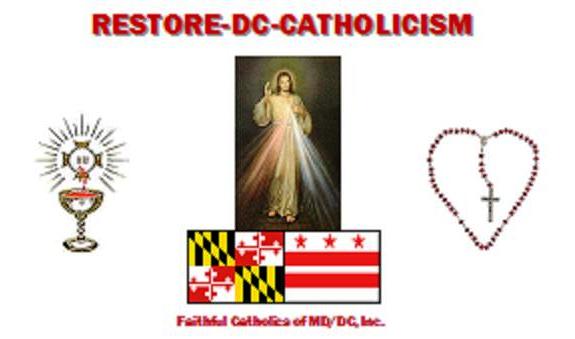While it may seem like I'm beating a dead horse with continued discussion about the 1940s song "Baby It's Cold Outside", I think this controversy has laid bare some problems in the thinking (or maybe more accurately non-thinking) in which some good people - even Catholics - are engaging.
Let me link to previous posts: here and here. Now here's an article in which the author appears to take pride in his mindlessness. Notice this sentence: "In fact, I never really cared for the song, Baby it’s Cold Outside, but now I do, and I’ll request it wherever I am and play it as often and as loudly as I can."
He is defending the song, not on its own merits, but simply because some leftists oppose it. In other words, he is taking his cues from them as opposed to his own independent ideas about the song. He goes so far as to call it "the greatest Christmas song" when the the word "Christmas" is mentioned not once in it, let alone any mention of the birth of Jesus Christ. Is this the sort of brainlessness that Catholics should adopt?
Many leftists describe us conservatives as knuckle-dragging neanderthals who only know how to react and who have no cogent reasons or basis for their actions. Sadly, the conduct of many conservatives in this matter serves only to justify such stereotypes.
More importantly, many Catholics are embracing this song simply because some leftists oppose it. This is actually a rather serious problem, since the lyrics of "Baby It's Cold Outside" depict the back-and-forth between a man and a woman who are not married to each other. These lyrics depict the man trying to seduce her into the mortal sin of fornication, with the woman wavering in her own convictions. Some leftists complain of the implications of date rape in the song. Regrettably, the line "say what's in this drink" shows their complaint to have some basis. At the very least, the man and woman are teetering close to the mortal sin of fornication.
Appallingly enough, some Catholics are in denial of what the lyrics are saying. They want to approve of the song simply out of a knee-jerk reaction to the leftists' claim of date-rape, so they are willing to deny the other sinful implications of the song. If these are the mental contortions in which they'll engage with this song, will there be other scenarios in which they will jettison their sense of Catholic morality?
Subscribe to:
Post Comments (Atom)








My Brain hurts?????
ReplyDeleteWhy? The post is not difficult to understand.
DeleteWell, as Bishop Robert Barron has opined that we have a "reasonable expectation" that very few, if any, folks go to hell, why worry? Eat, drink, sin and enjoy.
ReplyDeleteNot only is the song about a seduction attempt, and never mentions Christ.
ReplyDeleteIt doesn't even mention typical secularist Christmas stuff. Nearest it gets is mentioning "cold," which occurs regularly outside of Christmas Day.
This is Banality to the Tenth power.
A near perfect song for FrancisChurch!
DeleteWe are witnessing the death of civilization.
ReplyDeleteI never heard the song in my life before this brouhaha began. I agree the lyrics and scenario are suggestive -- is he really trying to get her to stay the night? The song was featured in a romantic comedy. (I looked up the film, Neptune's Daughter, and watched the song on YouTube.) The choreography of the song with Ricardo Montalban and Esther Williams is actually very clever and well done. And in the end of the movie, the couples get married in a double wedding. This is tame considering the depths to which films have sunk with explicit nudity and graphic sex on the big screen and nary one of those old fashioned wedding bands in sight. Sex sells and that's why it's always been included in films (and advertisements -- remember the sexy women draped on cars and the pretty legs coming out of the dancing cigarette box?). But this, I think, is a tempest in a teapot. And it's only become a controversy because of the hypocritical times we live in. "What's in this drink" would have had NOTHING to do with date rape drugs at that time. It would have referred to alcohol. And the hypocrisy of those going ballistic over this and having no problem with that poor little boy, "Desmond is Amazing" dancing at a gay nightclub while the sexual predators throw money is sickening. I love Ricardo Montalban and Esther Williams and I'm going to look for the movie. I don't consider this any more tantalizing or awful than Ado Annie, the "girl who can't say no" in Oklahoma. Projecting the perversions of our own times on old songs and movies is stupid. Can you imagine what these folks would do with Maurice Chevalier in Gigi singing, "Thank Heaven for Little Girls?"
ReplyDeleteThe song is tame compared to today's travesties only because that song dated to the beginnings of the cultural rot that we see today. The envelope was being pushed little by little and it keeps getting pushed. I suspect that if the degradation in that song (and others) was seen for what it was, and stopped then, we might have less of a problem than we have today.
DeleteI actually blogged about that problematic song several years ago (well before this episode) as I couldn't understand how this "baby" song that joked about the mortal sin of fornication could possibly be considered a "Christmas classic". Santa Baby was another.